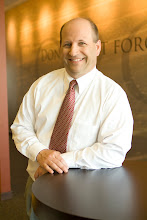A Conversation For Change vs. A Conversation For Healing,
Which Would You Prefer?
by: Brendan MageeI am in the doctors office with my dad. He has numerous medical conditions that require doctors to be on top of his situation. They need to see him weekly, check his weight, chemical balances, blood pressure, and to see if the medications he is taking are having the proper effect on his body. To make sure nothing gets lost in all the translations I attend all the appointments with my dad.
During the last discussion it dawns on me that we are not engaged in a process or conversation with the doctor for healing my dad's medical problems. We are in a process for maintaining his health at its present condition. His ailments are not going away and for my dad that is the most frustrating part of all the medications and doctor's appointments. Healing isn't taking place.
What we experience is a never ending process of changes. Weight, blood pressure, or fluid levels are up, the doctor makes a change to his medications. We are in a weekly process of tweaks to his medications. It's one of those things where the more things change the more they stay the same.
I likened it to the process that a lot of investors go through. Not happy with your investment returns, suffered a big loss, losing out to the hot performing investment? The solution is to make a change. Change to a fund with a higher track record for the last five to ten years. If that doesn't do it load up on the commodities that are getting all the media's attention. If that doesn't do it, turn on the computer and open up an account with E*Trade or Fidelity and start buying companies that the analysts say can't miss.
The constant in the lives of investors as it is with my dad and his doctors is change. If not to their own funds, then the fund mangers in the investors portfolio are engaged in trading of the stocks in its portfolio. The other constant is that the relief from disappointing returns or confusing messages that are floating around out there is that eventually the investor starts to experience the same frustration, confusion, upset, and fear they were hoping to get rid of when they made the last set of changes to their portfolio.
Again, the more things change the more they stay the same.
I do not believe investors are so much looking for changes, rather I believe they would prefer healing. Rather than make the pain of arthritis manageable, wouldn't you prefer to get rid of it once and for all? Rather than soothe your anxieties, fears, and worries about investing, wouldn't you rather find a way to eliminate them?
When it comes to investing, that requires a different conversation. A conversation that is focused on you the investor rather than your portfolio. It requires a conversation that exposes breakdowns and blind spots. It requires an investor to look and see what are the impacts of those breakdowns and blind spots. In other words it takes getting up close and personal with your humanity and how vulnerable it makes us when it comes to investing. An investor needs to see, and take ownership of where their behavior has them taking actions and making decisions that are in conflict with themselves. Most of all, it is going to take acknowledging that when it comes to putting a stop to dysfunctional investor behavior, you alone cannot stop it.
The minute that happens, that's when the healing will begin.
Brendan Magee is the founder and president of Inevitable Wealth Coaching. With questions or comments e-mail brendan@coachgee.com or call 610-446-4322.

